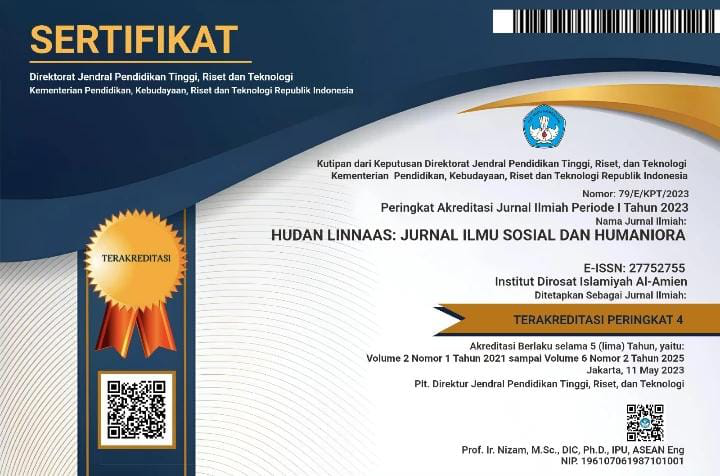JUDICIAL REVIEW UNDANG-UNDANG PERKAWINAN: FLOATING EXECUTION MAHKAMAH KONSTITUSI DAN IMPLIKASINYA TERHADAP KEPASTIAN HUKUM
Abstract
The Constitutional Court's decisions are not always implemented. This is proven by two Constitutional Court decisions in reviewing the Marriage Law (hereinafter written as UUP) which was "floating" (floating execution). In other words, it was not followed up with changes to norms as mandated in the Constitutional Court decision. The two decisions in question are Decision Number 46/PUU-VIII/2010 and regarding the birth of illegitimate children and Decision Number 69/PUU-XIII/2015 regarding marriage agreements. The two decisions above both cancel several articles in the UUP. Decision number 46/PUU-VIII/2010 annulled Article 43 paragraph (1) of the UUP which limits the civil relations of illegitimate children to only the mother and her mother's family. Meanwhile, in decision number 69/PUU-XIII/2015, the Constitutional Court annulled the provisions in Article 29 paragraph (3) of the UUP regarding marriage agreements which are only limited to the time before the marriage takes place. This research aims to trace the ratio decidendi in the Constitutional Court's decision regarding the judicial review of UUP, analyze the Constitutional Court's decision through al-qawaid al-fiqhiyyah al-qadhaiyyah, analyze the existence of juridical legal norms in UUP which were annulled by the Constitutional Court in relation to legal certainty and reconstruct the Constitutional Court's ideal relationship with executive and legislative powers so as to produce legal decisions that are implementable. Methodologically, this research seeks to analyze the prescriptive justification for three "floating" MK decisions. Therefore, this research is classified as doctrinal legal research which focuses on the rules of necessity (das sollen). Thus, the primary data sources in this research are the three Constitutional Court decisions in question, namely Decision Number 46/PUU-VIII/2010 concerning illegitimate children and Decision Number 69/PUU-XIII/2015 concerning marriage agreements. The results show that there are checks and balances, in this case, that is, each branch of power can supervise and balance so that no state institution is supreme. Therefore, the emphasis of the separation of powers is to clarify the position of each branch of power in carrying out its constitutional functions, and ultimately, to avoid overlapping between existing authorities.
Keywords
References
Al-Mazru, A. I. M. (1992). Ilzam Waliy al-Amr wa Atsaruhu fi Masail al-Khilafiyah. Riyadh: Majallah al-Bayan.
Al-Zarqa, A. I. M. (2001). Syarh al-Qawaid al-Fiqhiyyah. Damaskus: Dar al-Qalam.
Andreescu, M., & Puran, A. (2018). Supremacy of the Constitution: Some Legal Consequences. Journalof Law and Administrative Sciences, 9(1).
Assiddiqie, J. (2005). Konstitusional di Berbagai Negara (2nd ed.). Jakarta: Konstitusi Press.
Bisariyadi. (2017). Politik Penundaan Pelaksanaan Putusan Atas Nama Demokrasi. Majalah Konstitusi, 74.
Fudin, H. (2022). Aktualisasi Check and Balances Lembaga Negara: Antara Majelis Permusyawaratan Rakyat dan Mahkamah Konstitusi. Jurnal Konstitusi, 19(1).
Hamilton, A. (2008). The Federalist Paper. Jakarta.
Huda, N. (2018). Kekuatan Eksekutorial Putusan Mahkamah Konstitusi. yogyakarta: UII Press.
Khallaf, A. W. (1986). Ilmu Ushul al-Fiqh. Cairo: Dar al-Kuwaitiyyah.
Maulidi, M. A. (2019). Alec Stone Sweet, “Constitutional Courts and Parliamentary Democracy”, West European Politics , “Questioning the Executorial Force on Final and Binding Decision of Constitutional Court". Jurnal Konstitusi, 16(2).
MD, M. M. (2009). Rambu Pembatas dan Perluasan Kewenangan Mahkamah Konstitusi. Jurnal Hukum, 16(4).
MD, M. M. (2011). Membangun Politik Hukum, Menegakkan Konstitusi. Jakarta: Rajawali Pers.
Montesquieu, B. de. (1949). the Spirit of the Laws. New York: Hafner Library of Classics.
Nursalam. (2016). Metode Penelitian: Pendekatan Praktis.
Pasal 24C Undang-Undang Dasar 1945, Pasal 10 ayat (1) Undang-Undang Nomor 24 Tahun 2003 tentang Mahkamah Konstitusi (sebagaimana telah diubah terakhir dengan Undang-Undang Nomor 7 Tahun 2020 tentang Perubahan Ketiga Atas Undang-Undang Nomor 24 Tahun 2003 . (n.d.).
Prayogo, R. T. (2016). “The Implementation of Legal Certainty Principle in Supreme Court Regulation Number 1 Of 2011 on Material Review Rights and In Constitutional Court Regulation Number 06/PMK/2005 on Guidelines for the Hearing in Judicial Review” Sulardi, “Legal Certainty, . Jurnal Legislasi Indonesia, 13(2).
Putusan MK Nomor 46/PUU-VIII/2010 dan Putusan MK Nomor 69/PUU-XIII/2015.
Sarwono. (2011). Hukum Acara Perdata Teori dan Praktik. Jakarta: Sinar Grafika.
Siahaan, M. (2009). Peran Mahkamah Konstitusi Dalam Penegakan Hukum Konstitusi. Jurnal Hukum, 16(3).
Suhariyanto, B. (2016). Masalah Eksekutabelitas Putusan Mahkamah Konstitusi Oleh Mahkamahn Agung. Jurnal Konstitusi, 13(1), 181.
Supandi. (2010). Permohonan Penangguhan (Schoorsing).
Widiarto, A. E. (2015). Ketidakpastian Hukum Kewenangan Lembaga Pembentuk Undang-Undang Akibat Pengabaian Putusan Mahkamah Konstitusi. Jurnal Konstitusi, 12(4), 736–737.
DOI: 10.28944/hudanlinnaas.v5i2.1904
Refbacks
- There are currently no refbacks.

This work is licensed under a Creative Commons Attribution-NonCommercial-ShareAlike 4.0 International License.







.png)